Edgy and sophisticated, black is having a moment in architecture and interiors. Black in the garden? It can work beautifully when used well. Inky walls help the edges of the garden recede, dark patios ground a design and black containers contrast with light, finely textured foliage.
Could you use black in the garden? Here are some ideas to get you started.
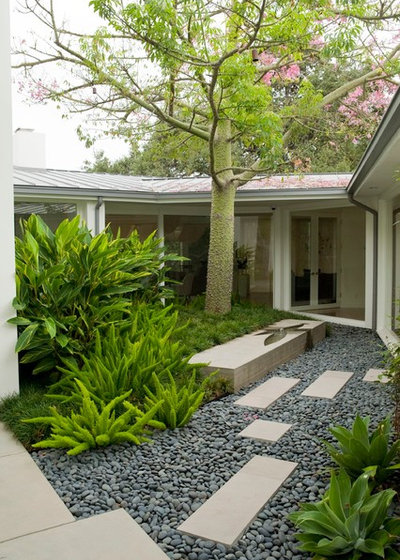
EPT DESIGN
1. Dark surfacing. Using black or dark gray as a surface for paths and patios gives a design gravitas. In this example black Mexican beach pebbles juxtaposed with lighter hardscape elements help draw the eye to the center of the space. Go sparingly on dark ground surface treatments in warm climates, however, as they can conduct a considerable amount of heat.
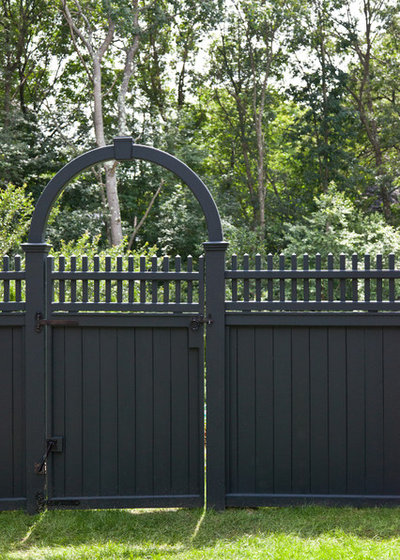
Matthew Cunningham Landscape Design LLC
2. Moody walls and fences. A white fence can be hard on the eye. As gardener and author Christopher Lloyd notes, white “draws your eye but makes you wish it hadn’t.” Not so with black fencing, which tends to recede into the background, helping to seamlessly blend the site’s boundary into the surrounding landscape.
This traditional-style fence is quietly gorgeous in black. As with all paint, test your choice first. Colors will read differently with sun, cloudy skies and shade. Black looks particularly smashing in overcast climates. A great fence color is Studio Green by Farrow & Ball. This green is so dark, it appears almost black.
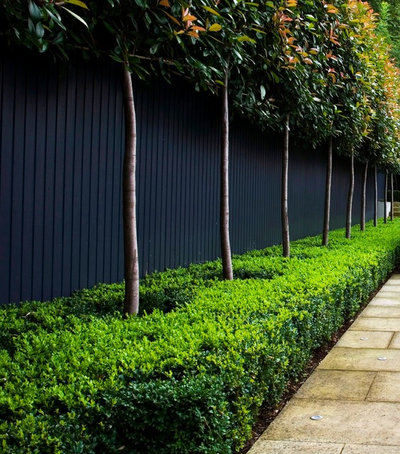
Laara Copley-Smith Garden & Landscape Design
Black tends to be serious. The dark background here heightens the design’s formality and draws attention to the rhythm created by the lighter trunks of the pleached trees. So chic!
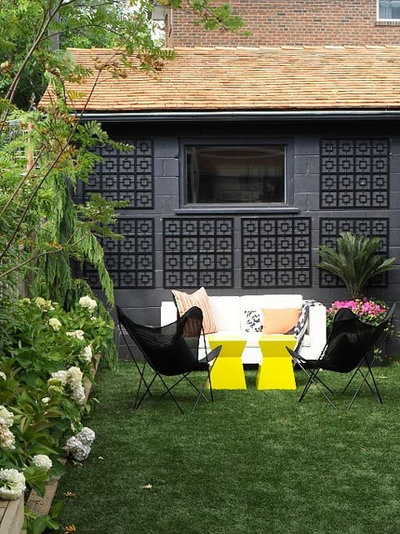
Shirley Meisels
Not always so serious, though. This garden has graphic punch. The metal grids add texture to the dark wall and keep the mood from feeling too somber, and the chartreuse tables and white sofa add a jolt of fun.
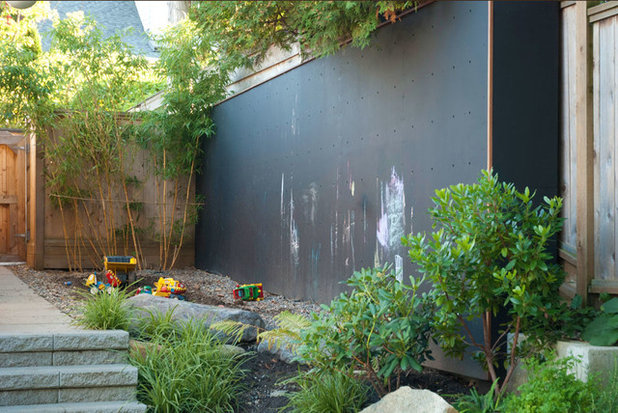
Matt Kilburn
3. Chalkboard walls. Here is black being downright fun. In urban lots where space is at a premium, a chalkboard wall is an ideal way to help create a child-friendly space. This one even features holes for climbing holds.
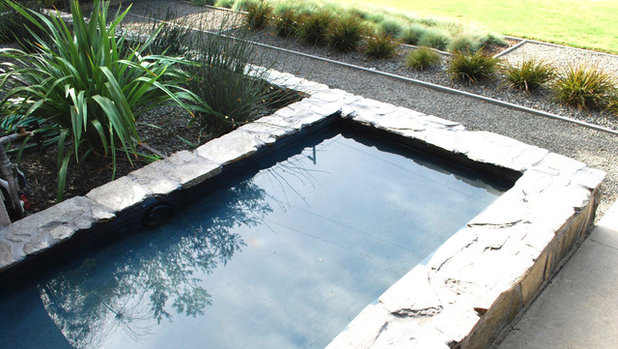
June Scott Design
4. Dark-bottomed water features. When you are selecting the plaster color of your water feature or swimming pool, you are actually determining the water color. Ponds and water features with dark plaster interiors tend to make the water appear a deep blue. They also create a mirror effect, reflecting the sky and surrounding landscape.
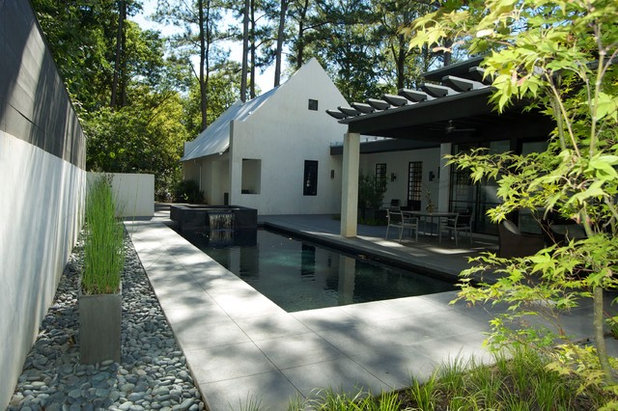
Howard Design Studio
This pool feels mysterious and appears deeper than it is, becoming the focal point of the space and balancing the dark pergola above. Dark-bottomed pools tend to look more naturalistic, and this one feels just right for the wooded surrounding landscape. Reflecting less sunlight than light-bottomed pools, dark-bottomed pools also benefit from solar gain.
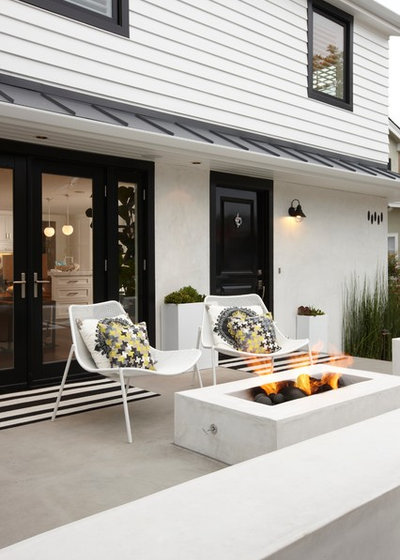
Eric Aust Architect
5. Black and white. At once classic and modern, black and white are crisp choices for the garden. The combo’s extreme contrast can make even a simple outdoor room feel chic. Details such as the patterned chair pillows here keep the look lively.
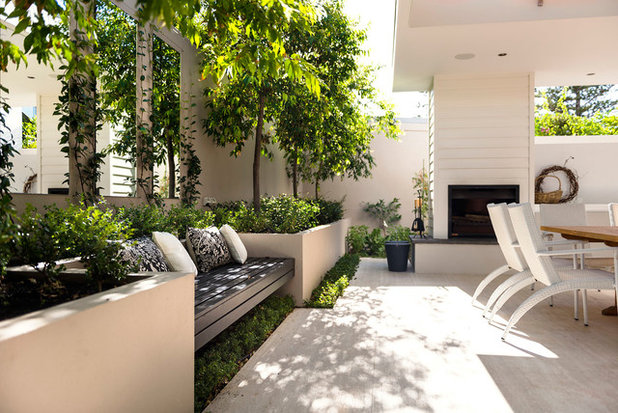
Swell Homes
Pair black and white with lots of green foliage for a fresh, bold look. With a simple palette of such high contrast, it’s important to balance all of the colors and elements involved. The black elements in this example help stabilize the ethereal whiteness of the walls and patio.
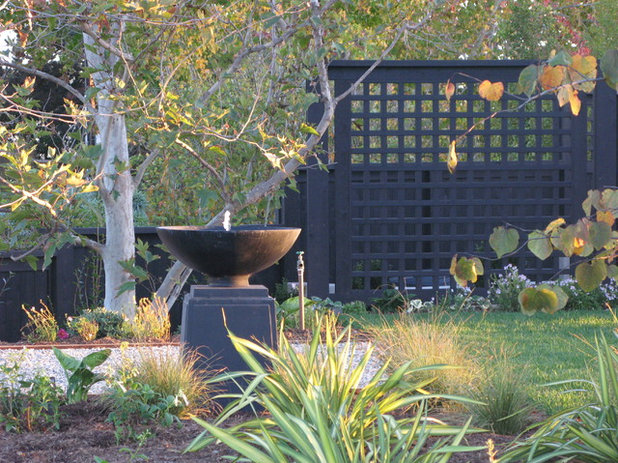
debora carl landscape design
6. Dark garden focal points. A focal point directs the eye and gives it someplace to rest. Position focal points to be the first thing you see in the space, with surrounding garden elements used to support them. A black focal element has a strong enough presence to be a striking centerpiece.
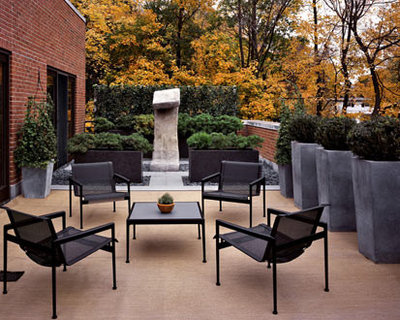
Austin Patterson Disston Architects
Black can also be used as a supporting player, as the underpinning for a focal point.
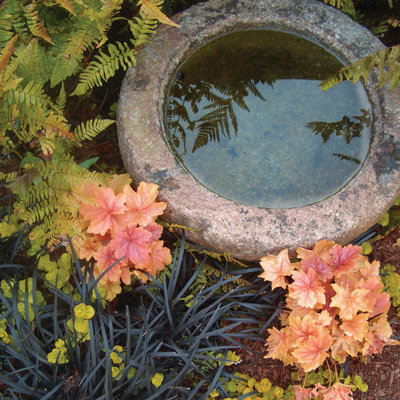
Zeterre Landscape Architecture
7. Black foliage. I’m the first to admit that plants with dark foliage can be tricky to use. Large areas of darkness can read as a “hole” in the design if not carefully placed.
The secret to using dark foliage successfully is to pair it with a lighter, brighter counterpart. The gold moneywort (
Lysimachia nummularia ‘Aurea’) slinking under the black mondo grass (
Ophiopogon planiscapus ‘Nigrescens’) here helps give the mondo grass its definition.
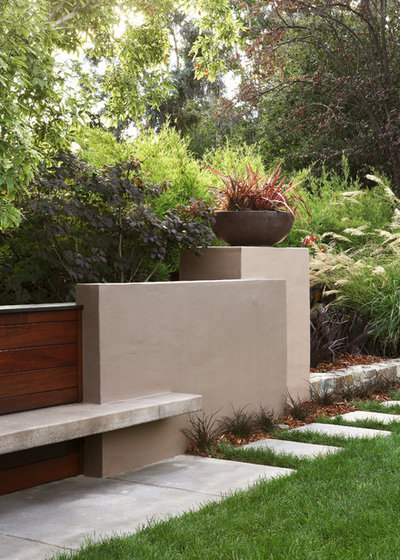
Arterra Landscape Architects
On a larger scale, as part of an overall planting design, carefully using dark foliage to direct the eye (in this case toward the container) can give a planting depth and purpose.
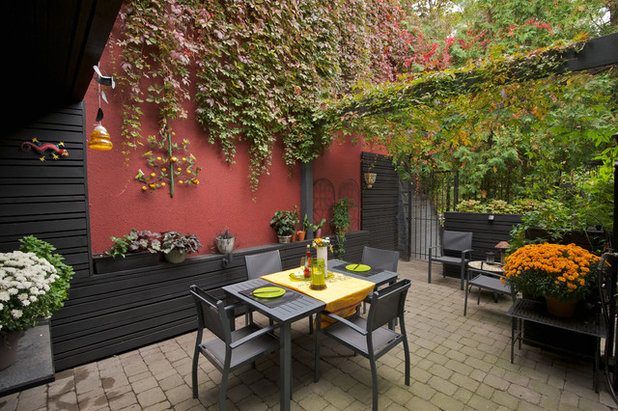
Sander Design Landscape Architecture
8. Black outdoor furnishings. Using black around the perimeter grounds and defines the space. As a neutral, black pairs well with almost any other color.
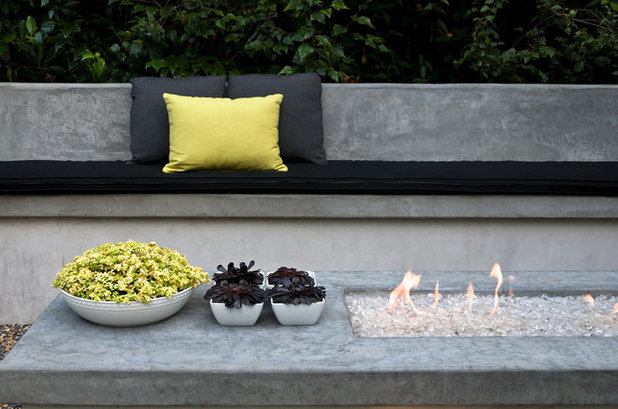
Lenkin Design Inc: Landscape and Garden Design
This dramatic seating area showcases black’s graphic qualities. The black furnishings and charcoal-colored built-ins seem to make the white glass fire element sparkle even more, and make the chartreuse touches feel even fresher.
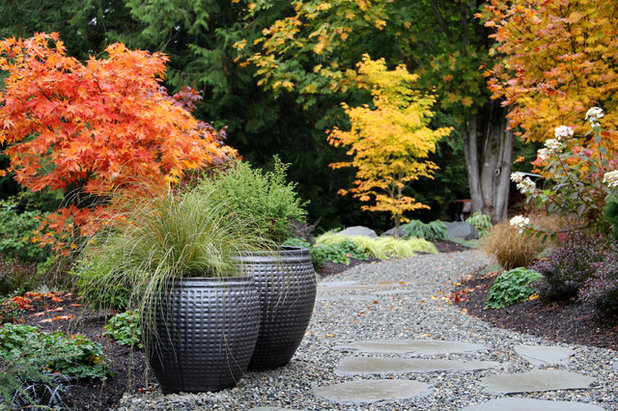
Bliss Garden Design
9. Dramatic containers. Want a touch of drama, but not ready for too much black? These containers are like jewelry for the garden, beautifully setting off the foliage they contain.
See more of this fall garden
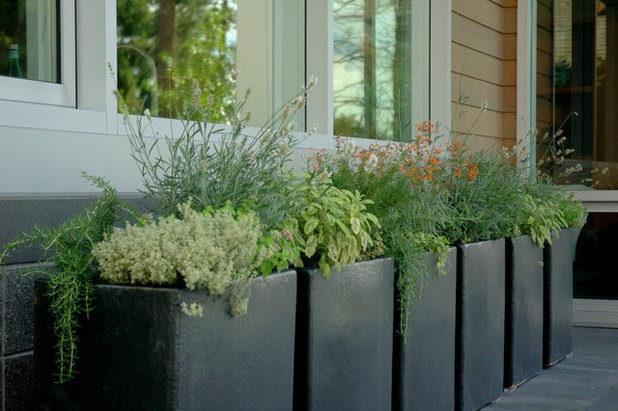
ModernBackyard
Black ceramic containers in the same shape and size bring harmony to this collection of plantings. You can also create this effect with other plants, such as cacti, succulents, flowering annuals and ferns.





